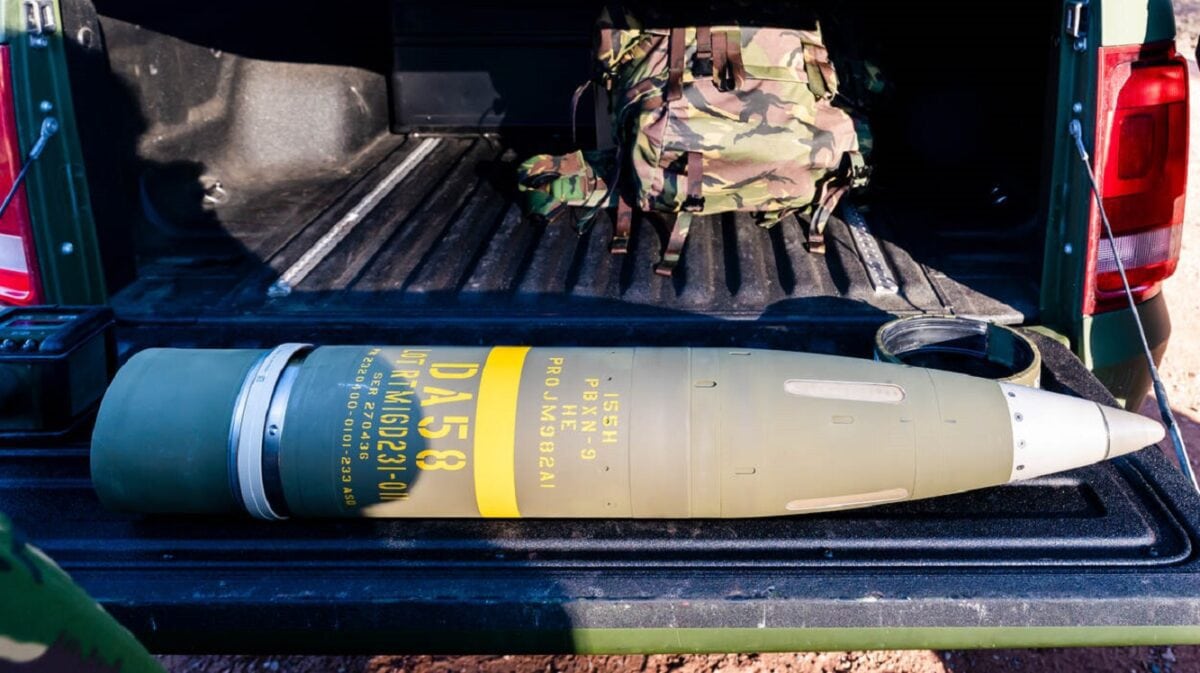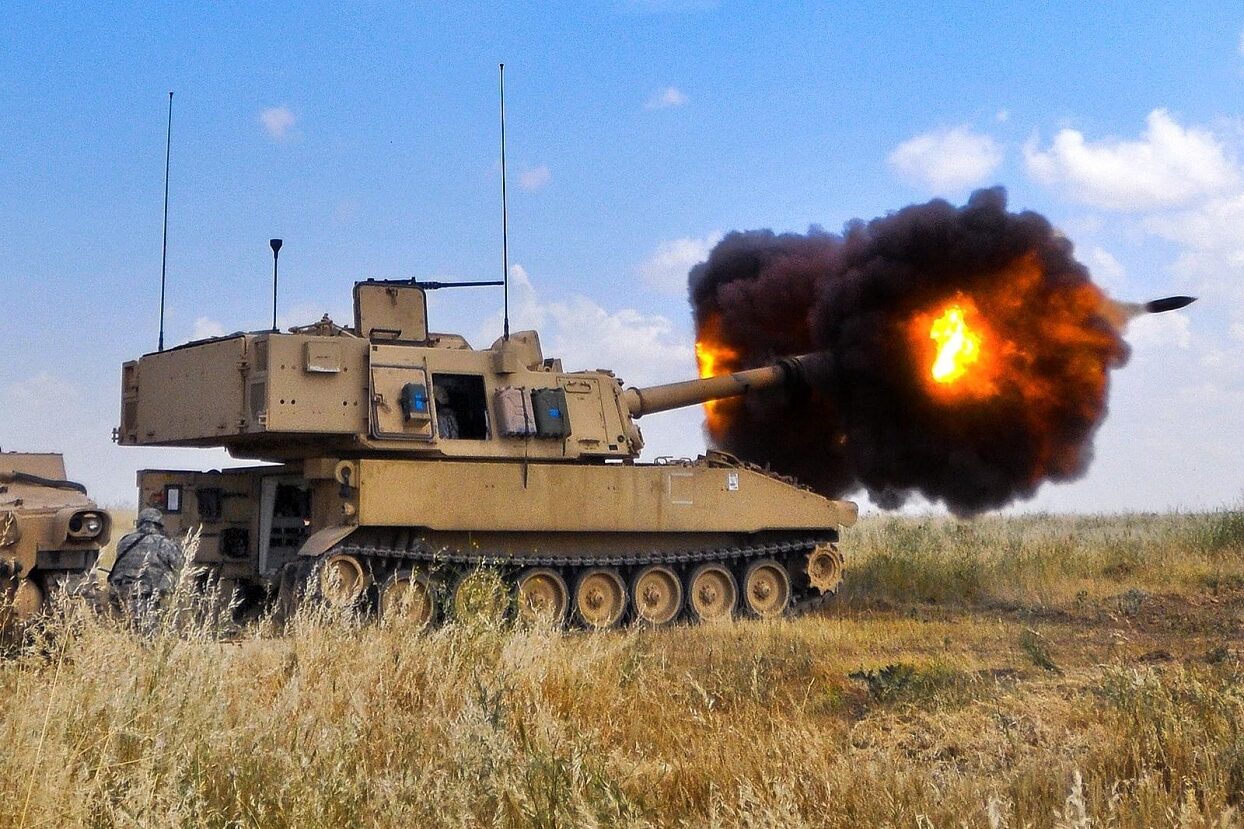The war in Ukraine has clearly changed the way most military analysts see the nature of modern warfare.
One specific example shines above all others: how much Russian military hardware is behind modern weapons from NATO and the West.
And clearly, in the area of artillery and missiles, NATO has a clear advantage it has extended to Ukraine.
Total Crushed: This Video Showed an Excalibur Destroy a Russian Self-Propelled Howitzer
A short video posted to social media back in March ended with a literal bang, showing the destruction of a Russian 2S3 Akatsiya 152mm self-propelled howitzer (NATO designation M1973) that was targeted via a drone.

Excalibur Round. Image Credit: Creative Commons.
The unmanned aerial system (UAS) served as an airborne spotter and allowed the Ukrainian Army to then strike the vehicle with an M982 Excalibur precision ordnance round.
The incident occurred near Donetsk City, and it appeared that the Russian howitzer had attempted to take cover in the woods along a dirt road.
However, drones paired with such smart ordnance have enabled Ukrainian forces to strike with deadly precision.
Since being posted by Ukraine Weapons Tracker (@UAEweapons) in mid-March, the clip has been shared many times.
Howitzer in the Crosshairs
The 2S3 Akatsiya (Russian for the “acacia flower”) 152mm self-propelled howitzer was developed in the late 1960s as a response to the American 155mm M109 howitzer. The tracked vehicle entered service in the early 1970s and was first used in the Soviet-Afghan War.
It proved to be an effective and reliable artillery system, and was later used with great success during the two Chechen wars – while it continues to see service in the Syrian Civil War.
Though not amphibious, the 2S3 offers good cross-country mobility due to its tracked chassis, even if it is speed is limited. That latter part could explain the efforts for the vehicle to remain concealed along the treeline.
The Russian Army had more than a thousand of the vehicles in service when it launched its unprovoked invasion of Ukraine last year, while the Russian Navy had some 400 in active operation with an additional 600 in storage.
Both branches of the Russian military have deployed their respective 2S3s to Ukraine – while Kyiv’s forces are also reported to have approximately 500 in its arsenals. The issue for Ukraine’s military has been the supply of 152.4mm ordnance.
The platform is routinely operated by a crew of four to six personnel, including a driver, gunner, loader, and commander – as well as two ammunition bearers depending on the mission requirements. It is unclear from the short video clip how many individuals may have been in the Akatsiya when it came under fire.
Excalibur Strike
This video clip is also just the latest to show off the capabilities of the M982 Excalibur, the 155mm extended-range guided artillery shell.
Developed as part of a collaborative effort between the U.S. Army Research Laboratory (ARL) and the United States Army Armament Research, Development and Engineering Center (ARDEC), it is a GPS and inertial-guided munition that is capable of being used in close support situations within 75 to 150 meters (240 to 480 feet) of friendly troops.
Each round is equipped with a jam-resistant internal GPS receiver to update the inertial navigation system, providing precision in-flight guidance and dramatically improving accuracy to less than two meters miss distance regardless of range.
#Ukraine: The Ukrainian Army destroyed a Russian 2S3 Akatsiya 152mm self-propelled howitzer with a M982 Excalibur precision artillery strike near #Donetsk City. pic.twitter.com/J73xS37xTx
— ???????? Ukraine Weapons Tracker (@UAWeapons) March 21, 2023
Analysis of the ordnance has shown that on average, it can take at least 10 conventional munition rounds to accomplish what a single Excalibur can.
The “smart ordnance” can be fired from the British-made M777 howitzers and by the Polish-designed AHS Krab NATO-compatible self-propelled tracked gun-howitzer.
It was used successfully in taking out the 2S3 Akatsiya.
Author Experience and Expertise:
A Senior Editor for 19FortyFive, Peter Suciu is a Michigan-based writer. He has contributed to more than four dozen magazines, newspapers, and websites with over 3,200 published pieces over a twenty-year career in journalism. He regularly writes about military hardware, firearms history, cybersecurity, politics, and international affairs. Peter is also a Contributing Writer for Forbes and Clearance Jobs. You can follow him on Twitter: @PeterSuciu.

